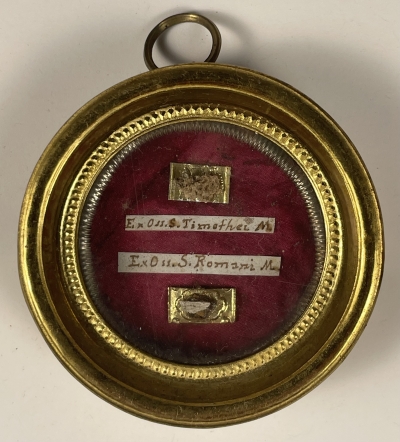Saint Timothy of Ephesus (†97) was an early Christian evangelist and the first Christian bishop of Ephesus. Timothy was born of a Jewish mother who had become a Christian believer, and a Greek father. The Apostle Paul met him during his second missionary journey and he became Paul's companion and missionary partner along with Silas. The New Testament indicates that Timothy traveled with Paul the Apostle, who was also his mentor. He is addressed as the recipient of the First and Second Epistles to Timothy. Timothy is venerated as an apostle, saint, and martyr by the Eastern Orthodox Church, with his feast day on 22 January. The General Roman Calendar venerates Timothy together with Titus by a memorial on 26 January, the day after the Feast of the Conversion of Saint Paul. Timothy is invoked against stomach and intestinal disorders.
Saint Romanus of Caesarea (also known as Romanus of Antioch) was a deacon of Caesarea, he was martyred at Antioch. In 303 or 304, at the beginning of the Diocletianic Persecution, a he served in Caesarea in Palestine. He was living in Antioch where in the midst of the persecutions, he encouraged the Christians to stand firm. During a pagan festival, he upbraided the participants for worshiping idols. Taken prisoner, he was condemned to death by fire, and was bound to the stake. When rain extinguished the flames, Romanus was brought before Emperor Galerius who was then in Antioch. At the emperor's command Romanus' tongue was cut out. Tortured in various ways in prison he was finally strangled. The church of San Román in Seville is dedicated to Romanus. Prudentius wrote a 1140 line hymn to Romanus, the Romane Christi fortis, the tenth hymn in his Peristephanon. The feast day of Saint Romanus is observed on 18 November.









 Поменять язык на русский
Поменять язык на русский 